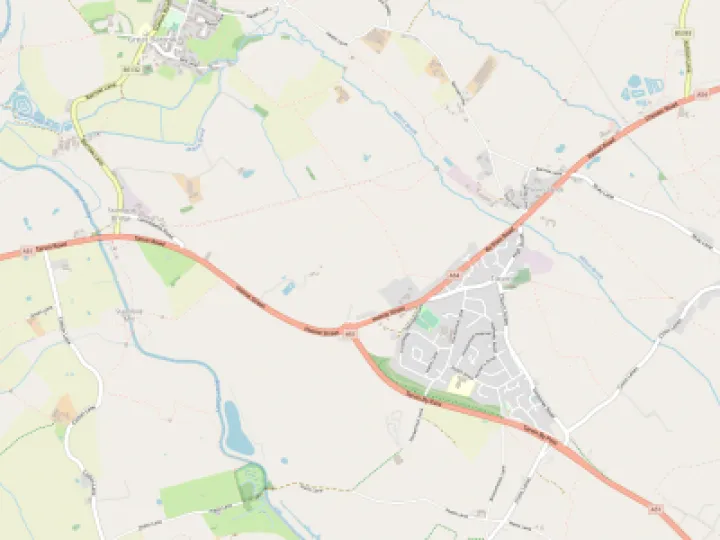Carers – Coming out of hospital
Coming out of hospital
Deciding to care or continue caring for someone who is coming out of hospital and who can no longer care for themselves in the same way as before can be very difficult. If the person you care for is in hospital you may be faced with important decisions. You may be considering taking on this caring role for the first time and don't know what to expect. Or you may have already been caring for the person, but their needs have now increased or changed.
One important thing to remember is that it is your choice whether or not to take on a caring role. Think about the type and amount of support you are able to provide and what help you might need. For example, you may be able to help with shopping and meals but feel that you would both like someone else to help with personal care. It is important for you to consider how your caring role is likely to affect your life and wellbeing.
An outline of the discharge procedure
Discharge planning starts as soon as the person you care for is admitted to hospital. It is important to let the hospital staff know as early as possible if you are a carer or thinking of taking on the role. A discharge coordinator (or ward care coordinator) should be available to coordinate the planning process. They will act as a key person for you to contact to find out what the discharge plans are.
Should I, as a carer, be involved in the discharge procedure?
The hospital discharge policy should emphasise the importance of involving you and the person you care for at all stages of discharge planning, so long as the person you care for consents to this.
Hospital wards can sometimes seem like busy or intimidating places and you may feel pressure from the hospital to get the person you care for home as soon as possible. The person you care for may be anxious to come home. However, it is important that you feel your views have been taken into consideration and that the person you care for is not being discharged before necessary support has been put in place.
In situations where the person you care for does not want you to be involved or be given information about their care, you should be informed of this.
If the person you care for lacks mental capacity you may be able to make certain decisions about health and welfare matters if you have a Lasting Power of Attorney (LPA). If there is no LPA the law requires professionals to act in the 'best interests' of the person you care for and you should be involved in this decision making process.
What should happen before the person I care for is discharged?
When the person you care for is nearing their expected date of discharge the following steps should be taken:
An assessment should be carried out to see if they are medically fit to be discharged.
A discharge assessment should be carried out to see if they need support once discharged.
A carer's assessment should be carried out (or at least arranged), to see whether you as a carer need support once the person you care for is discharged .
A written care and support plan should be given to the person you care for (and a support plan for yourself if you have had your own carer's assessment), which outlines the support required and how this will be provided.
The support outlined in the care and support plan (for the person being cared for) and the support plan (for you) should be put in place.
What should happen on the day the person I care for is discharged?
On the day of discharge you and the person you care for should expect to be given both verbal and written information, with details of any services involved and information about future treatment and care. The information should be available in a language and format suitable for you. It is common that people do not remember or understand all the information they are given so don't be afraid to ask for it to be repeated or explained in a different way.
You and the person you care for should expect the following type of arrangements to be made for the day of discharge:
- appropriate transport should be organised if it is required
- you should both be given copies of the care or support plan (for the person being cared for) and the support plan (for you)
- a discharge letter should be sent to the GP of the person you care for within 24 hours
- medication and any equipment needed at home should be dispensed to the person you care for, as well as instructions and information about its use
- any necessary support should be put in place to start on the day of discharge
- A discharge 'lounge' (or similar space) should be available for use in the hospital while waiting for transport, medication etc.
The discharge assessment
The discharge assessment, which is to see if the person you care for needs support once discharged, might be carried out by a multidisciplinary team of health or social care professionals. This is to avoid multiple assessments being carried out.
This discharge assessment should look to see whether the person you care for is eligible for any intermediate or reablement care, NHS continuing healthcare or NHS funded nursing care, other NHS services and/or community care services from the local authority.
Intermediate or reablement care
Intermediate care is a short term package of care which is provided with the aim of assisting the person you care for to maintain or regain the ability to live independently at home. Government guidance states that intermediate care should be available to all adults over the age of 18 who might need it and certain young disabled people while managing their transition to adulthood.
Intermediate care could include any of the following:
- crisis response services providing short term care
- home-based care services provided by health professionals such as nurses and therapists
- bed-based care away from home such as in a community hospital
- reablement
Reablement is a particular type of intermediate care which has a stronger focus on helping the person you care for to live independently. It is generally provided by local authorities.
Before the intermediate care or reablement ends, there should be another assessment to determine whether the person you care for has ongoing needs for care and support (if this has not already been decided).
Intermediate and reablement care should be provided free of charge for up to six weeks (although this can be longer in some circumstances). After the six weeks if there are ongoing support needs which are being met by the NHS, these should be free of charge. If there are ongoing support needs which are being met by the local authority, they can charge for such services.
NHS continuing healthcare or NHS funded nursing care
NHS continuing healthcare is a package of care for those who are 18 or over who have a 'primary health need' that is arranged and funded by the NHS. This package of care can be provided in the home of the person you care for, in a care home, or via a personal budget.
If it seems like the person you care for might be eligible for NHS continuing healthcare an assessment should be carried out for this. Generally there is an initial checklist assessment which determines whether the person you care for will be told they don't meet the criteria for a full assessment and are therefore not eligible, or whether they will have a full assessment of eligibility. Be aware that the eligibility criteria are very tight and most people with ongoing care needs won't qualify. Around 60,000 people in England are currently in receipt of NHS continuing healthcare.
NHS funded nursing care is available if the person you care for is 18 or over and is not eligible for NHS continuing healthcare, but they are assessed as requiring nursing care in a care home that is registered to provide nursing care. This means that the NHS will pay a contribution towards the cost of their registered nursing care.
Note: NHS continuing care is the alternative provision for children under 18. It is different to adult NHS continuing healthcare in that the whole package of care is not normally arranged and funded by the NHS. Rather, a holistic approach is adopted when assessing children for continuing care that incorporates social services and education departments in addition to the NHS, which may lead to joint funding arrangements, depending on the child's assessed needs.
Other NHS services
Palliative care can be provided free on the NHS and is for people who have a health condition which is not expected to be cured by medical treatment. Palliative care can consist of pain relief and other appropriate medical care, as well as providing emotional and practical support. It can take place in a hospice, residential care or the person's own home.
Medical equipment and incontinence products can be provided free on the NHS if the person you care for is assessed as needing such items.
Community care services from the local authority
Most people being discharged from hospital won't need or be eligible for NHS continuing healthcare. Instead they can have an assessment from the local authority, to determine whether they are eligible for any support. Support could include things such as equipment or adaptions to the home, a care worker to help provide personal care etc.
The hospital should give an assessment notice to the local authority so that they can carry this out as part of the discharge assessment.
If the person you care for is assessed as needing support from the local authority, they will carry out a financial assessment to determine whether, and if so how much, the person will need to contribute towards the cost of any support provided.
The carer's assessment
As a carer you can have an assessment from the local authority, to determine whether you are eligible for any support. Support could include services provided directly to you, or services provided to the person you care for, which in turn would help you in your caring role.
There are various different types of assessments depending on whether you are an adult yourself, and whether the person you are caring for is an adult.
https://www.carersuk.org/help-and-advice/practical-support/getting-care-and-support/carers-assessment
If you are assessed as needing support from the local authority, the local authority might carry out a financial assessment to determine whether, and if so how much, you will need to contribute towards the cost of any support provided. However, it is hoped that a lot of local authorities will not charge carers for support provided to them. If the support is provided to the person you are caring for, you as a carer cannot be charged.
Quick Links
Get In Touch
TarvinOnline is powered by our active community.
Please send us your news and views.







